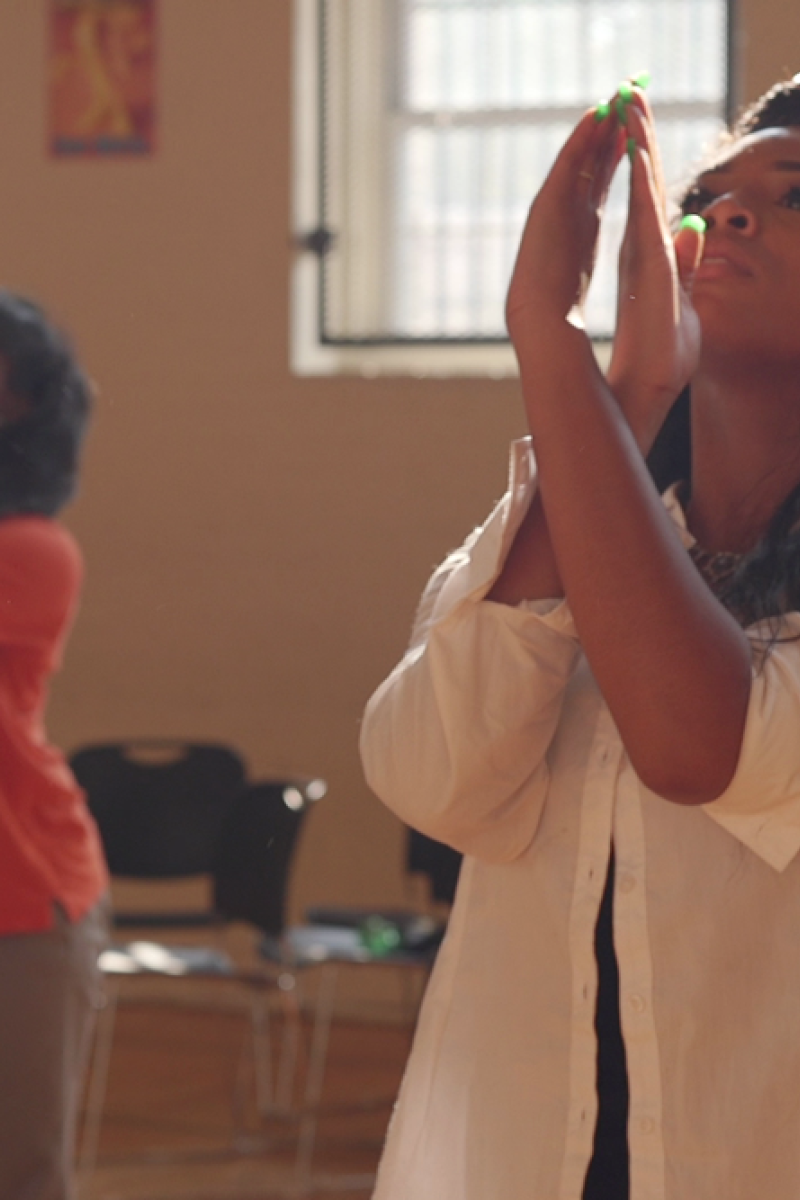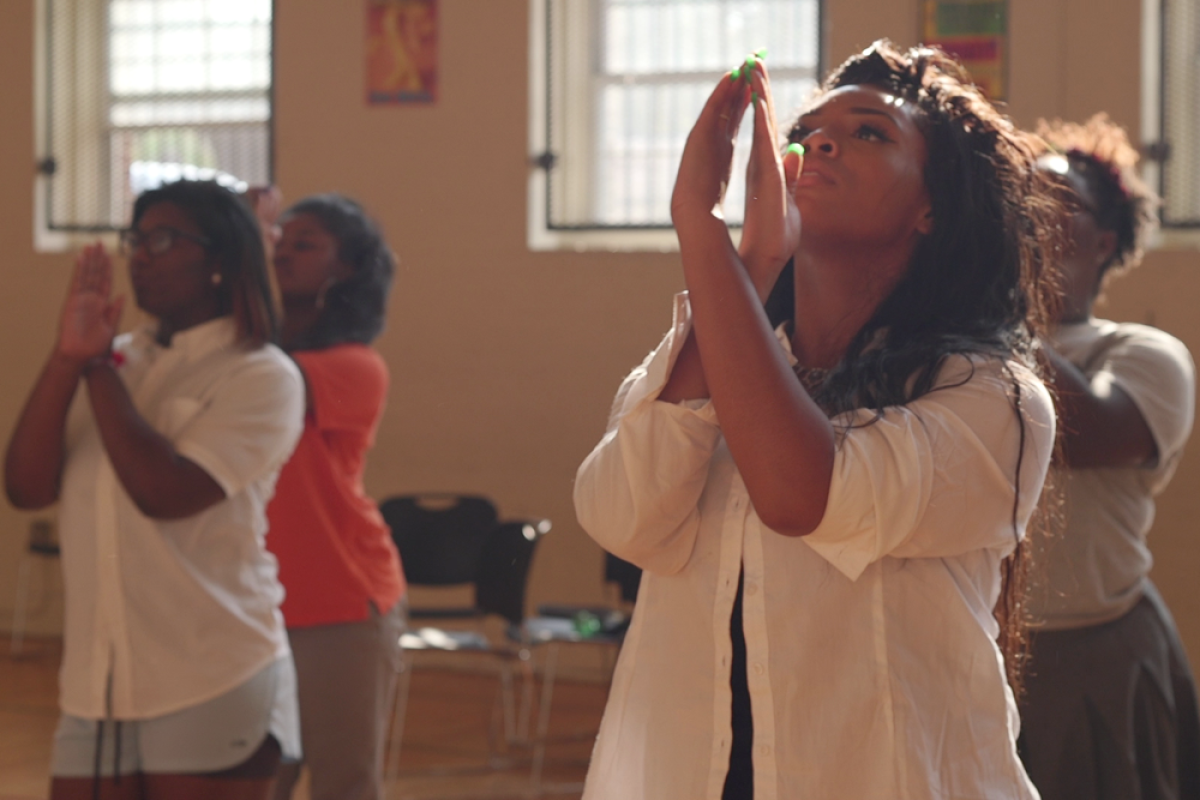
From Legally Blonde the Musical to Step: what inspired director Amanda Lipitz to make her first ever documentary
 Blessin Giraldo, the founder of Lethal Ladies step dance team, goes through ups and downs in both her academic and dance journeys.
Blessin Giraldo, the founder of Lethal Ladies step dance team, goes through ups and downs in both her academic and dance journeys.American director Amanda Lipitz had made short films for most of her career even though many around her told her she should make a documentary, becaused she'd never found a subject matter important enough to her to document it. This all changed the moment she witnessed step dance group Lethal Ladies, a group of African American girls from Baltimore in the US, in action. The result was the powerful and tear-jerking documentary, Step, which is sweeping awards at Film Festivals all over the world, including Sundance.
Step follows the story of three of the Lethal Ladies: Blessin Girado, Cori Grainger, and Tayla Solomon. The three young women are in their final year at The Baltimore Leadership School for Young Women (BLSYW), which aspires to send every one of their students, most of whom are from low-income families and the unforgiving area of inner-city Baltimore, to college.
“When I walked in and saw them stepping, it was like a musical," Lipitz told Young Post. "These young women were telling me who they are, what they want, and who they're going to be with every clap, every step and every breathe."
Lipitz had been filming at BLSYW for a long time, but it wasn't until Blessin invited her along to watch them step that she found inspirationg for her debut documentary.
In the end, the director's biggest challenge had nothing to do with production values or logistics. "Watching the girls struggle but not interfering (in a way that would change their story)” was most challenging. Lipitz had to be just an observer when the young women and their families lived with not having enough food or having their power cut.
Instead, the director made a rule that when the Blessin, Cori and Tayla were with her during filming, which often took eight hours a day, they would have something to eat and get to travel safely.
“It served us very well in the moments where there was no food, and there was no transportation, and somebody needed something.”
While not being able to help was her biggest challenge, perhaps Lipitz biggest joy was being able to witness great emotion. For example, when Cori’s mother Triana wept with joy when her daughter got accepted into Johns Hopkins University on a full scholarship.
“Knowing how grateful (Triana) was that her daughter has achieved this incredible dream, and being able to (break the stereotype that underprivileged Baltimore can't go to college) was a very proud moment for me,” Lipitz revealed.
Asking any filmmaker to pick a favourite scene from their project is like asking a parent to pick a favourite child, but Lipitz reveals that hers is at the step competition at Bowie State University as the girls, as a team, walked down the hall to take the stage. The director explains that such a scene is usually exclusively associated with male athletes, "and I really like that it’s now young black women instead.”
However, for Lipitz, the ones she most wanted the documentary to please were the three BLSYW final year students. It was very important to her that they were proud of Step and themselves. In fact, Lipitz was incredibly nervous when she showed the girls the documentary for the first time in a private screening room the night before its premiere at the Sundance Film Festival in January.
“The girls loved it, and that was one of the best moments for me.”
Step isn't just about three girls though, and it isn't just about stepping. It's about universal themes that are much bigger than Lipitz or even her three heroines. It's something she has to borrow words from Martin Luther King to express.
“He said to them, ‘Right now, right in this moment, you have to decide which way your life is gonna go. No matter the circumstances of your life, though they may be intolerable, burn the midnight oil, and stay in school’.” Lipitz quoted, “I think that is the message: have a blueprint, have a plan in your life. If that plan is to go to college, go for it; if that plan is to get a certificate programme, go for it; if that plan is to be the most famous artist in the world, grow yourself into it.”
“Don’t lay down, and when life gets you down, do not give up.”
